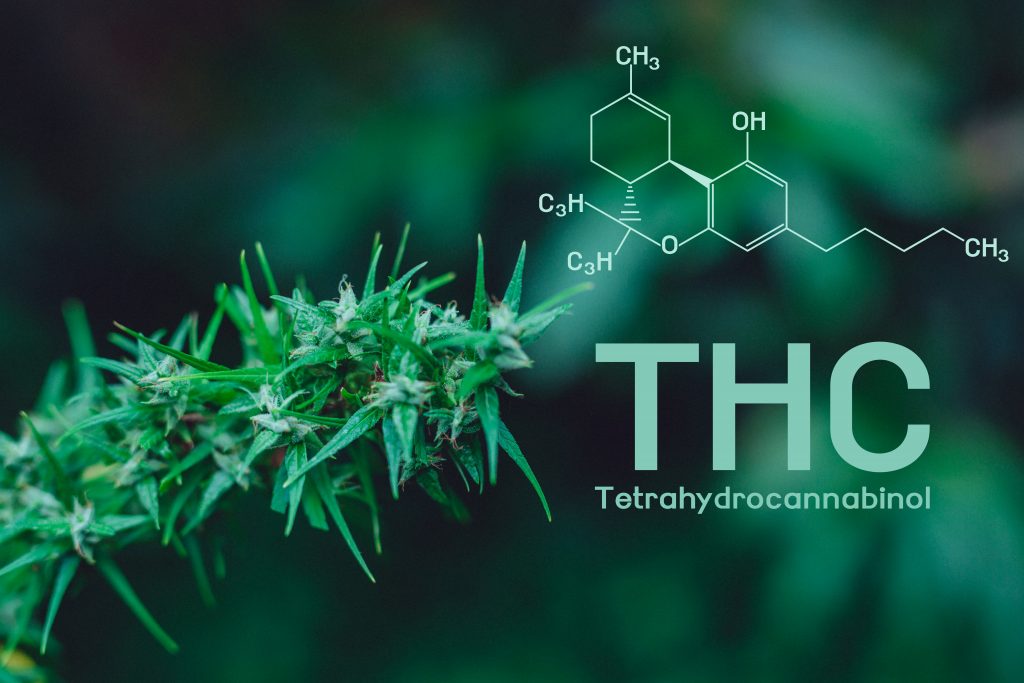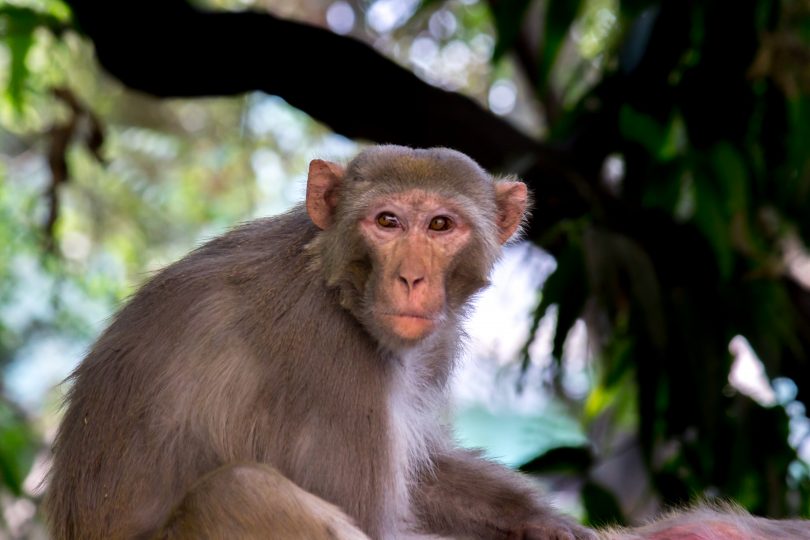There’s a lot of debate about the possible dangers of cannabis, and how realistic those dangers are. A couple studies from decades ago have come to light again, reminding us that research has already shown us that THC, even in extremely high doses, won’t kill monkeys. What can this research tell us about THC and humans?
It’s interesting that research from the 70’s found that THC given orally won’t kill monkeys. Sometimes past research gets forgotten about or ignored. This is good to know since cannabis is becoming legal, and high THC products are on the market. In fact, the industry has expanded to include more than delta-9 THC, and cannabinoids like delta-8 THC can also be bought off store shelves. Interested? Go ahead and check out The THC Weekly Newsletter to get great deals on Delta 8, Delta 9 THC, Delta 10 THC, THCO, THCV, THCP, & HHC products of your choice.
The research
There is a lot out there that will tell you cannabis is bad and can lead to bad things. While the jury might be out on certain topics, the idea that cannabis is lethal to humans, has never been proven. In fact, taking a trip back in time to revisit old research, it becomes clear it was already known that THC is not lethal to many animals, even in high doses.
Back in 1973, Worcester Massachusetts’s Mason Research Institute conducted a study entitled: Comparison of acute oral toxicity of cannabinoids in rats, dogs and monkeys. This study was done all the way back in 1973, which is important to note, as it was done before the current debates about cannabis safety, and was done to actually ascertain at that time if THC could be lethal for monkeys, dogs, and rats, and at what doses.
The monkeys used in the experiment were rhesus monkeys, however, the scientists also did comparable tests on rats and beagles, to see if there was variation in how different species of animals reacted to high levels of cannabinoids. It should be remembered that this study used massive doses of THC, amounts far beyond what a human would ever ingest in a short period of time.
The study used delta-9 THC, delta-8 THC, and CME (crude marijuana extract), given in a single high dose. What the study investigators found in the research, is that while rats responded much more to the THC, with most dying at high amounts, THC won’t kill monkeys when given orally.

Research shows rats die with large doses of THC
The study used 373 Wistar-Lewis and Fischer rats of both male and female sexes. All rats died in the experiment, with 95% dying within 72 hours of receiving a large dose of either delta-8 or delta-9 THCs. However all three compounds tested caused the rats to die eventually. The doses ranged from 225–3,600 mg/kg of THC.
The general cause of death was severe hypothermia, which it’s already known that THC can cause, even in humans. While the delta-8 and delta-9 also caused severe organ damage and toxicity, the extract didn’t seem to cause as much organ damage, though it did provide the same amount of THC, leading the rats to die. In terms of effects of toxicity other than death, the rats showed severe hypothermia, bradypnea, rapid weight loss, inactivity, wide stance, ataxia, muscle tremors, and prostration.
If you’re wondering just how much THC was given to these rats, it’s a massive amount. Considering each rat weighed approximately 150 grams, for each dose of 225 mg/kg, a rat was given approximately 33 mg of THC. At doses of 1,800 mg/kg, it means each of these 150 gram rats was being fed 540 mg of THC. Now consider that some of them received as much as 3,600 mg/kg. And now consider that legalized locations generally don’t allow more than 10 mg of THC per gummy for humans, and that most people won’t take more than a few at a time tops. And then remember that adult humans generally weigh 100 pounds plus.
Research shows dogs will NOT die with large doses of THC
A rat is a tiny animal, but a dog is much bigger. The dogs used in the study were beagles, and they were not full grown, with each being between 7-10 months, and weighing in the range of 6-13 kg. Not the biggest dogs ever, but much bigger than rats.
The dogs were given doses as high as 3,000-9,000 mg/kg of THC per dose. This means that some of the animals may have taken in the neighborhood of 26,000 mg of THC. Once again, remember we consume gummies with generally not more than 10 mg of THC, and we’re all bigger than 13 kg.
Only two dogs died during the study, and this was unrelated to the consumption of THC, but rather because of choking on the actual solution being administered. According to the study authors, the signs that the THC had reached levels of toxicity in the dogs were mostly related to drowsiness, ataxia, prostration, anesthesia, tremors, mild hypothermia, salivation, emesis, and anorexia. Regardless of the extremely high doses, no dogs died as a result of the THC.

Research shows monkeys will NOT die with large doses of THC
The use of monkeys is interesting since they are more closely related to humans. The rhesus monkeys used in the study were also given the extremely high doses of 3,000-9,000 mg/kg of THC. Rhesus monkeys generally weigh on average around 5-8 kg. Much like with the dogs, no monkeys died from lethal THC exposure, and there weren’t any deaths related to other issues either.
Also much like the dogs, though the massive doses of THC were not lethal, they did cause toxicity in the animals, which showed in symptoms of hyperreactivity to stimuli, lethargy, drowsiness, characteristic huddled posture, slow movements, abnormal eating procedures, and sedation. According to the researchers, they showed behavioral changes indicative of depression.
One of the behaviors seen in the monkeys was the huddled posture, which more than 90% of the monkeys adopted while on these high doses of THC. The researchers stated: “In each case, the monkeys assumed a sitting position, often facing the back of their cages, and rested their faces in their hands or between their knees.”
Of course, we’re already aware that ingesting too much THC (something that can happen easily with edibles) can make a human sick, so that these animals would experience symptoms of toxicity at higher levels than humans get sick on, does indeed make sense. The main takeaway of the study was the inability for scientists to find a lethal dose for monkeys or dogs when administered orally. Although both types of animals did show extreme signs of toxicity, which really isn’t surprising given the much-more-than-human doses that were given.
Subsequent research on THC and monkeys
A year after the previously mentioned study came out, a similar research study was done, specifically looking at delta-9 THC, and rhesus monkeys. This study, entitled Oral and intravenous toxicity of Δ9-tetrahydrocannabinol in rhesus monkeys, looked at both oral and IV administration of the THC, rather than just oral. In the study, 28 monkeys were given oral administration for 28 days using doses of 0, 50, 250 or 500 mg/kg of delta-9 per day. 16 monkeys were administered the THC through IV over 28 days, with doses of 0, 5, 15 or 45 mg/kg being given per day.
The results were interesting and both back up and go against the last study. What was the same, was that none of the monkeys being given the THC through oral administration died, even with up to 9,000 mg/kg administered. As the last study dealt with just one dose, and this study dealt with daily doses over a 28 day period, there were some other results of interest in the oral category. A couple monkeys treated orally with 500 mg/kg per day became moribund (close to dead, but not dead) by days 10 and 14, and one reached that state on the 16th day at a rate of 50 mg/kg given daily. That it took till later days to get this reaction could imply that such a result required a large build-up in the system.
However, every monkey being given an IV injection of the delta-9 THC died at doses of 128 mg/kg plus. They all died from cardiac failure, or respiratory arrest. So, either their hearts stopped beating, or their lungs stopped breathing. Both groups experienced the same physiological and behavioral changes, including lethargy, huddled posture, bradypnea, hypothermia, bradycardia, weight loss, anorexia, and constipation. Tolerance and cumulative toxicity were also similar between groups, with an obvious difference in outcome based on the route of administration.

Conclusion
This research into THC and animals like monkeys is useful for our understanding of the toxicity of THC, and ability for it to cause death. While animals like dogs and monkeys are not likely to die with oral administration, this cannot be said for rats, or at least not when using extremely massive, and unrealistic doses. In fact, nothing mentioned above was based around the idea of realistic amounts of THC used, especially for the given weights of the animals. Because of this, it can’t be said from the study above that THC is necessary lethal to rats when taken in what would be normal, or even just somewhat high doses.
But we can also see from the second study that the route of administration can have a large effect on the ability for death. While THC might not be deadly when taken orally for dogs and monkeys, even in monstrous amounts, this cannot be generalized to IV administration, which is a great reminder that how we take a drug can have an important impact on how it affects us. Of course, its still best to remember, that the monkeys started dying at 128 mg/kg, and that’s the equivalent of almost 13, 10-mg gummies, and humans don’t even do that, whether IV or not. So it is quite possible that at realistic rates, no monkeys would die from IV administration.
In the end, what the two studies back up, is that a lot of THC can be consumed orally, without an expectation of death in monkeys or dogs, even if symptoms of toxicity are shown. And while these studies weren’t done on humans, human deaths haven’t been reported from ingesting THC. Since monkeys are very similar to humans, it could realistically be expected (but not assumed) that this outcome with the monkeys would go for humans as well, even at the same massive doses.
Two last points: 1) Why do these studies never come up in the whole current debate about the possible dangers of THC, since they point a finger at the compound not being lethal for humans? And 2) I am not personally a fan of animal research, and while I think it’s great it allows us to learn information, I do not support these kinds of studies.
Hello and thanks for stopping by! Welcome to CBDtesters.co, your #1 internet source for the most relevant and interesting cannabis and psychedelics-related news stories going on in the world today. Read-thru the site regularly to stay aware of the quickly-morphing landscape of legal drugs and industrial hemp, and remember to sign up for The Delta 8 Weekly Newsletter, so you always know what’s going on.
Disclaimer: Hi, I’m a researcher and writer. I’m not a doctor, lawyer, or businessperson. All information in my articles is sourced and referenced, and all opinions stated are mine. I am not giving anyone advise, and though I am more than happy to discuss topics, should someone have a further question or concern, they should seek guidance from a relevant professional.







